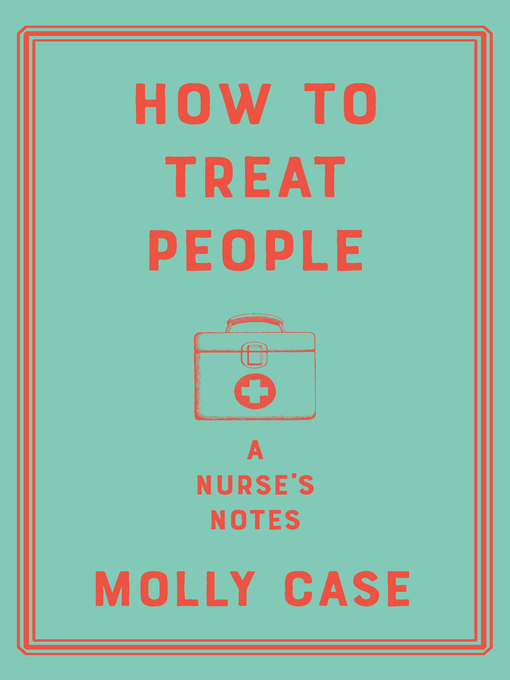
How to Treat People
A Nurse's Notes
- اطلاعات
- نقد و بررسی
- دیدگاه کاربران
نقد و بررسی

May 27, 2019
“Respect the nurse” is the theme of this reverential memoir from London nurse Case. “It is the nurses,” Case writes, “who, despite racking up thousands of steps on their pedometers, are in fact a static constant for the person lying in extremis in the hospital bed.” Case began working in hospitals as a student nurse in 2012, and her book documents her time learning her craft as she delves into medical history (Greeks and Egyptians factor heavily) and explains surgical procedures. At its core, though, it’s a lucidly written narrative about patient care: Case points out that a nurse must treat patients’ ailments and try to sooth their souls, even when patients are combative—as was the case with Sidney, who refused treatment for his maggot-infested legs—or insulting, as with Shirley, a heart-attack victim who called Case a slut. Case’s writing is efficient and never too emotional, but there are amusing moments, including the time she couldn’t remove a 70-year-old patient’s penis piercing and had to call for assistance. Case writes of feeling especially thankful for her training, noting one evening in particular when she aided her father as he had a stroke. This book is a thank you note to hospital caregivers and will appeal to those interested in nursing and the intricacies of patient care.

July 15, 2019
A journey through the variegated days and nights of a young nurse. Combining a near dreaminess with quotidian details, both refreshingly and intimately shared ("as a last resort, we use medication to subdue patients: haloperidol, which between ourselves we call vitamin H"), London-based Case tells the story of her first steps as a nurse. She begins by discussing "last offices," the procedures undertaken after the death of a patient. The author writes with a refreshing matter-of-factness that keeps things from becoming too opaque. She frames the narrative around the nursing checklist when first examining a patient: airway, breathing, circulation, disability, exposure. She covers each of these steps in a number of short chapters that range among compact profiles of her patients, family tales (her father was in and out of the hospital), and nursing lore and wisdom. Though Case's writing is unaffected, that doesn't mean it isn't moving. When a man died alone in her ward, she writes, "I watched as the patient seemed to disappear." Her simple explanations make for clear understanding of, for example, why a patient might try to pull out a chest drain and IV lines after an operation. Some of the most pungent passages come from what she has learned from her time on the ward. "I had become fluent," she writes, "in the way blood moved, smelt, how its colour could signal a patient's chances of survival." The action takes place at an English hospital, where Case easily swings into teaching mode. We get a smattering of Galen, Aristotle, the Tzeltal Mayans, and others on their approaches to medicine, and as the author chronicles how to analyze a pulse, she reminds us that the word comes from "pulsus," Latin for "to beat." Each chapter is a filigree, tenderly rendered no matter what the subject. A finely wrought delineation of the art of nursing.
COPYRIGHT(2019) Kirkus Reviews, ALL RIGHTS RESERVED.

August 1, 2019
When reflecting on past educational experiences, people tend to remember a favorite teacher who stood out not only because they were highly knowledgeable about their subject, but because they were an effective communicator. Nurse Case (Underneath the Roses Where I Remembered Everything) brilliantly evokes those same teacher-like qualities in her new memoir. Rather than simply recounting a patient's treatment, the author enriches the writing by delving into medical etymology and pertinent life-saving methods. Facts from ancient history help readers connect past and present, while Case's precise language creates poignant images of her various encounters with illness. As a result, readers begin to recognize a beauty in nursing that exists outside the stark realities of night shifts, trauma, and sickness. VERDICT Case is both an intellectually and an emotionally accomplished practitioner. Her memoir would pair well with Christie Watson's The Language of Kindness, which similarly relates the experiences of a professional who embodies the humanity of nursing. Recommended for anyone considering a career in nursing or who is new to the profession.--Chad Clark, San Jacinto Coll. Dist., Pasadena, TX
Copyright 2019 Library Journal, LLC Used with permission.




دیدگاه کاربران